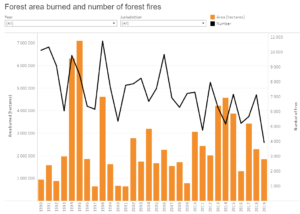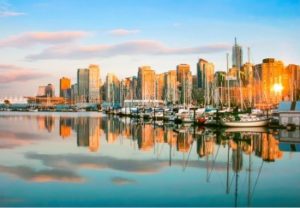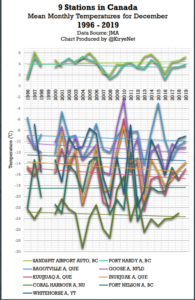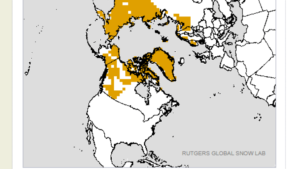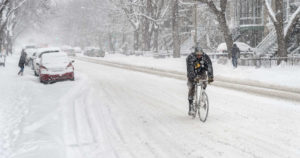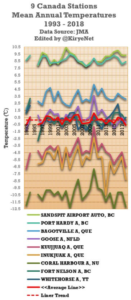by P. Gosselin, Aug 30, 2023, in ClimateChangeDispatch
Unusual weather situations are always the hour for attribution researchers these days.
Canada is suffering from forest fires again this year. The reason is the persistent drought. [emphasis, links added]
According to a study, climate change has doubled the probability of forest fires in Canada:
Extreme wildfire conditions in Canada have been fueled by intense, spatially extensive and persistent fire-conducive weather conditions, known as fire weather, which has been observed since the beginning of May throughout the country. Canada has experienced its warmest May-June period since 1940, beating the previous record set in 1998 by a huge margin (0.8°C).
At the national scale, relative humidity was also very low. The warm and dry conditions, together with continuous southeasterly winds fueled extensive fire spread in Alberta, British Columbia, central Saskatchewan and southwestern portions of the Northwest Territories.
There are at least 17 direct fatalities linked to the fires, more than 150,000 people have been evacuated, and at least 200 structures, including homes, were damaged in the fires (AP News, 2023).
The Canadian wildfires have severely impacted air quality locally in Canada, and in the neighboring United States with Air Quality Index (AQI) values frequently exceeding safe levels in the Midwest and northeast USA, and in some cases approaching record levels (e.g. on June 7th AQI reached 341 in New York City, considered hazardous for all residents) (CNBC, 2023).
Similarly, in southern Ontario, including the cities of Ottawa and Toronto, air quality reached the ‘very high risk’ level forcing officials to cancel public events and reduce hours for outdoor public services. Schools remained closed for several days in many states, including Nova Scotia, New York, New Jersey, and Connecticut.”
Trend defies alarmist claims
However, the country’s official wildfire statistics do not show this suspected trend. Statista lists them.
Strictly speaking, the trend in the number of fires is decreasing through 2022. [The numbers will rise again in 2023 given almost 6,000 fires were counted by August 23, 2023.]
But that will still be below the 2006 figures.


